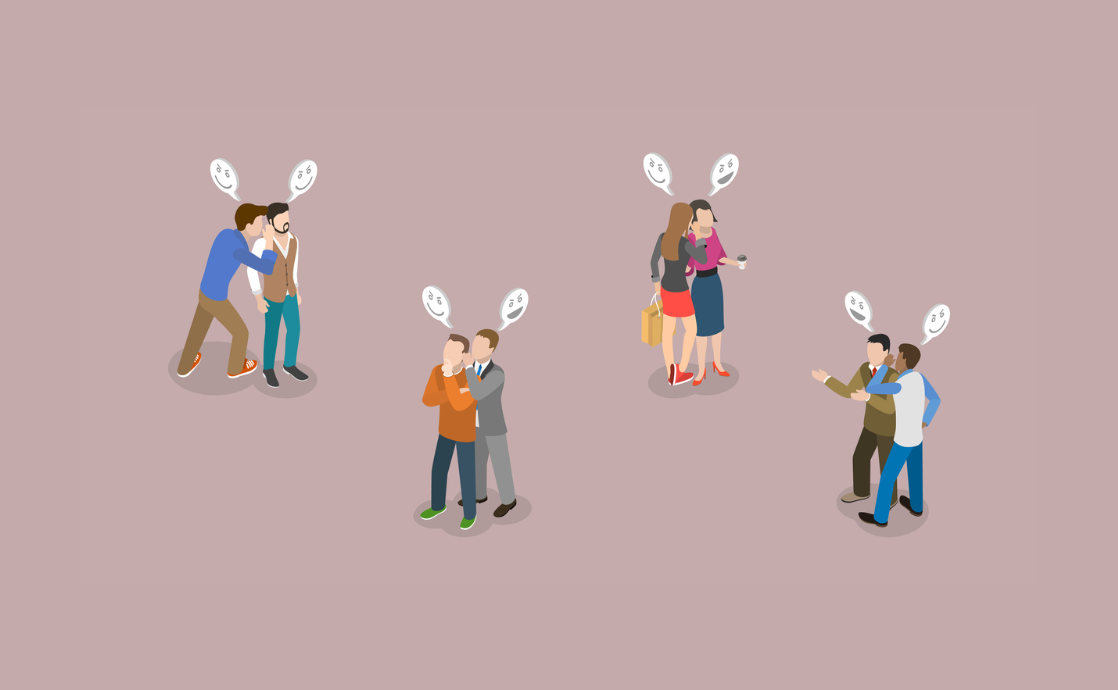Backbiting, a phenomenon as old as human interaction itself, can lead individuals and communities down a treacherous path. What often begins as a seemingly innocuous conversation can spiral into a cycle of negativity, harm, and fragmentation. In light of this, one must ponder: What are the ramifications of indulging in backbiting, not only for the individuals involved but also for the broader community? This contemplation forms the crux of an exploration into the dangers associated with backbiting, as illuminatively presented by Bahá’í teachings.
To embark upon this discussion, it is essential to delineate the nature of backbiting. At its core, backbiting involves speaking negatively about another person when they are absent, often designed to diminish their reputation. This seemingly trivial act belies its capacity for profound consequences, engendering distrust and strife. The Bahá’í Faith unequivocally condemns backbiting, presenting it as a poison that taints the unity of humanity. Query: Could there be a more corrosive act against the collective harmony than the willingness to denigrate our fellows?
The first danger of backbiting is the immediate psychological and emotional impact it has on the individual being spoken about. To undermine someone’s character behind their back is to strip them of their dignity and respect. Often, those engaged in backbiting do not fully realize the emotional toll their words may take on others. It is crucial to recognize that, like a boomerang, the harm inflicted by such behavior can recoil upon the perpetrator, inducing feelings of guilt, remorse, and a tarnished sense of integrity.
Moreover, indulging in backbiting creates an environment steeped in suspicion and fear. When dialogue morphs into derogation, a palpable tension permeates interpersonal relationships. Observers may become wary, questioning the motives behind every conversation. Such an environment is antithetical to the Bahá’í principle of unity. The teachings emphasize that humanity’s progression hinges upon fostering an atmosphere of trust and empathy. Ask yourself, do you prefer to be part of a community built on mutual respect or one rife with suspicion and betrayal?
As we delve deeper into the implications of this behavior, we must consider its impact on community cohesion. The resultant fracture from backbiting creates divisions, enabling factions to emerge within groups that were once harmonious. When individuals feel unjustly criticized or belittled, their emotional response could lead to disengagement from the community. In a world where synergy and collaboration are paramount, the consequences of backbiting can be catastrophic. Communities, whether small or expansive, cannot thrive if their members are constantly undermining each other.
Furthermore, backbiting unveils profound moral dilemmas that reflect a lack of personal accountability and integrity. The Bahá’í teachings advocate for individuals to engage in self-reflection, fostering the development of virtues that uplift not just oneself, but also others. When one engages in backbiting, they inadvertently betray their own values and principles. They surrender their standing as a thoughtful participant in the collective. By choosing to participate in negative conversations, one limits their capacity to be agents of positive change.
Another significant aspect to consider is the ripple effect backbiting creates. Often, the act of speaking ill of someone does not remain confined to the initial conversation. It can spread like wildfire, weaving a complex tapestry of misstatements and misunderstandings. Each person who hears the gossip may interpret it through a warped lens, further distorting the truth. In this sense, backbiting not only harms the individual targeted but can lead to wide-ranging damage to relationships, reputations, and even the fabric of the entire community. Could it truly be said that words hold no weight in a digitally connected world, where ideas and stories are disseminated at lightning speed?
Let us not overlook the intrinsic lesson inherent in refraining from backbiting: the cultivation of compassion and understanding. The Bahá’í teachings emphasize the importance of recognizing the inherent nobility within each individual. By abandoning backbiting, one opens the door to a realm of empathy and respect, recognizing that everyone has their own struggles and complexities. Pausing to consider the implications of one’s statements can pave the way for dialogue infused with kindness, thus promoting healing and wholeness.
Lastly, a proactive approach toward dismantling backbiting is essential for personal and communal development. It is vital to develop tools and techniques that foster positive communication. Engaging in open, honest discussions about grievances, rather than resorting to disparagement when one is absent, creates an inclusive atmosphere. Utilizing the Bahá’í principle of consultation can be instrumental in this regard; it prioritizes transparency and constructive discourse while sidestepping the perils of gossip.
In summation, the hazards of backbiting reverberate through individual psyches and reverberate within communal structures, affecting harmony and integrity. When contemplating the choices one makes regarding speech, consider: Is the momentary gratification of speaking ill worth the potential damage it inflicts upon others and oneself? By committing to rising above this temptation, individuals not only safeguard their dignity but contribute to the establishment of a compassionate and unified society. Through adherence to Bahá’í principles, the path away from backbiting becomes clearer, allowing for the nurturing of authentic relationships built on trust, respect, and love.
